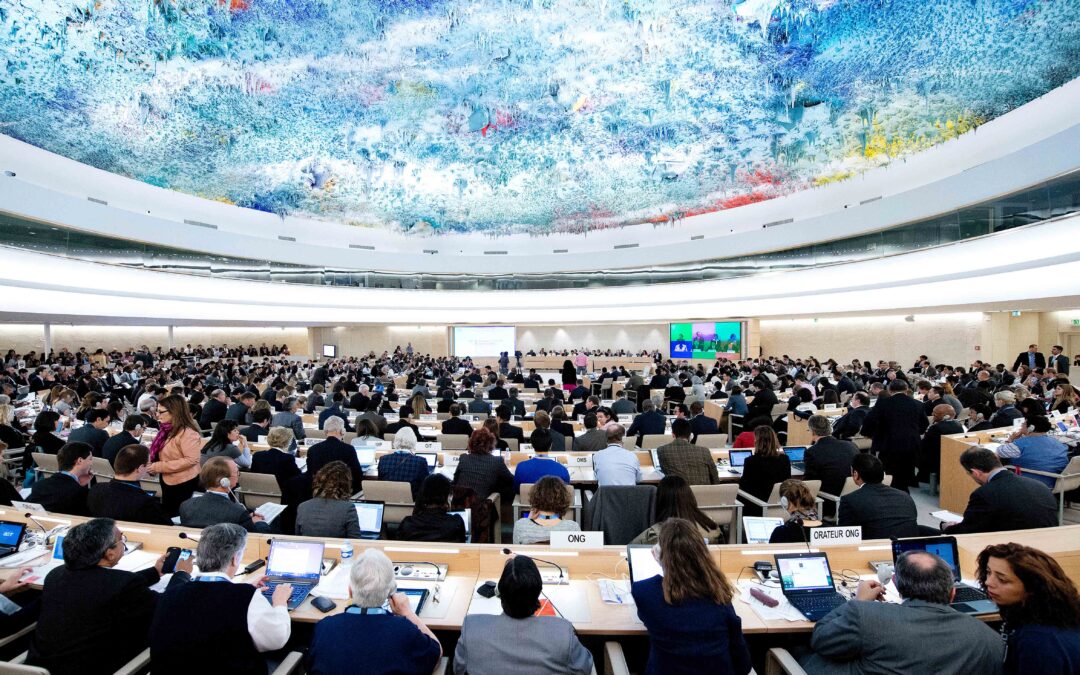
Sep 28, 2018 | Advocacy, Non-legal submissions
The ICJ joined other civil society organisations in addressing the UN Human Rights Council, on the successes and failures of its 39th session, concluding today.
The statement, read by International Service for Human Rights (ISHR), was as follows:
“This session, the Council adopted landmark resolutions on several country situations, further enhancing its contribution to the protection of human rights.
On Myanmar, we welcome the creation of the independent investigative mechanism, which is an important step towards accountability for the horrific crimes committed in Myanmar, as elaborated in the FFM’s report to this session. The overwhelming support for the resolution, notwithstanding China’s shameful blocking of consensus, was a clear message to victims and survivors that the international community stands with them in their fight for justice.
On Yemen, the Council demonstrated that principled action is possible, and has sent a strong message to victims of human rights violations in Yemen that accountability is a priority for the international community, by voting in favour of renewing the mandate of the Group of Eminent Experts to continue international investigations into violations committed by all parties to the conflict.
Furthermore, we welcome the leadership by a group of States on the landmark resolution on Venezuela, and consider it as an important step for the Council applying objective criteria to address country situations that warrant its attention. The resolution, adopted with support from all UN regions, sends a strong message of support to the Venezuelan people. By opening up a space for dialogue at the Council, the resolution brings scrutiny to the tragic human rights and humanitarian crisis unfolding in the country.
While we welcome the renewal of the mandate of the Commission of Inquiry (CoI) on Burundi, to continue its critical investigation and work towards accountability, however we regret that the Council failed to respond more strongly to Burundi’s record of non-cooperation and attacks against the UN human rights system.
We also welcome the Council’s adoption of the resolution on Syria, which among other things condemns all violations and abuses of international human rights law and all violations of international humanitarian law committed by all parties to the conflict.
However, on other country situations including China, Sudan, Cambodia and the Philippines, the Council failed to take appropriate action.
On Sudan, we are deeply concerned about the weak resolution that envisions an end to the Independent Expert’s mandate once an OHCHR office is set up; a “deal” Sudan has already indicated it does not feel bound by, and which is an abdication of the Council’s responsibility to human rights victims in Sudan while grave violations are ongoing. At a minimum, States should ensure the planned country office monitors and publicly reports on the human rights situation across Sudan, and that the High Commissioner is mandated to report to the Council on the Office’s findings.
We also regret the lack of concerted Council action on the Philippines, in spite of the need to establish independent international and national investigations into extrajudicial killings in the government’s ‘war on drugs’, and to monitor and respond to the government’s moves toward authoritarianism.
In addition, we regret the Council’s weak response to the deepening human rights and the rule of law crisis in Cambodia, failing to change its approach even when faced with clear findings by the Special Rapporteur demonstrating that the exclusive focus on technical assistance and capacity building in the country is failing.
We share the concerns that many raised during the session, including the High Commissioner, about China’s own human rights record, specifically noting serious violations of the rights of Uyghurs and other predominantly Muslim minorities in Xinjiang province. It is regrettable that States did not make a concrete and collective call for action by China to cease the internment of estimates ranging up to 1 million individuals from these communities.
On thematic resolutions, we welcome the adoption of the resolution on equal participation in political and public affairs but would have preferred a stronger endorsement and implementation of the Guidelines.
The resolution on safety of journalists, adopted by consensus, sets out a clear roadmap of practical actions to end impunity for attacks. Journalism is not a crime – yet too many States in this room simply imprison those that criticize them. This must end, starting with the implementation of this resolution.
We welcome the adoption by consensus of the resolution on preventable maternal mortality and morbidity and human rights in humanitarian settings. Women and girls affected by conflict have been denied accountability for too long. The implementation of this resolution will ensure that their rights, including their sexual and reproductive health and rights, are respected, protected and fulfilled.
Finally, the Council’s first interactive dialogue on reprisals was an important step to ensure accountability for this shameful practice, and we urge more States to have the courage and conviction to stand up for defenders and call out countries that attack and intimidate them.”
Signatories:
- The African Centre for Democracy and Human Rights Studies (ACDHRS)
- Amnesty International
- Article 19
- Center for Reproductive Rights
- CIVICUS
- DefendDefenders
- FIDH
- Forum Asia
- Human Rights House Foundation (HRHF)
- Human Rights Watch
- International Commission of Jurists
- International Service for Human Rights (ISHR)
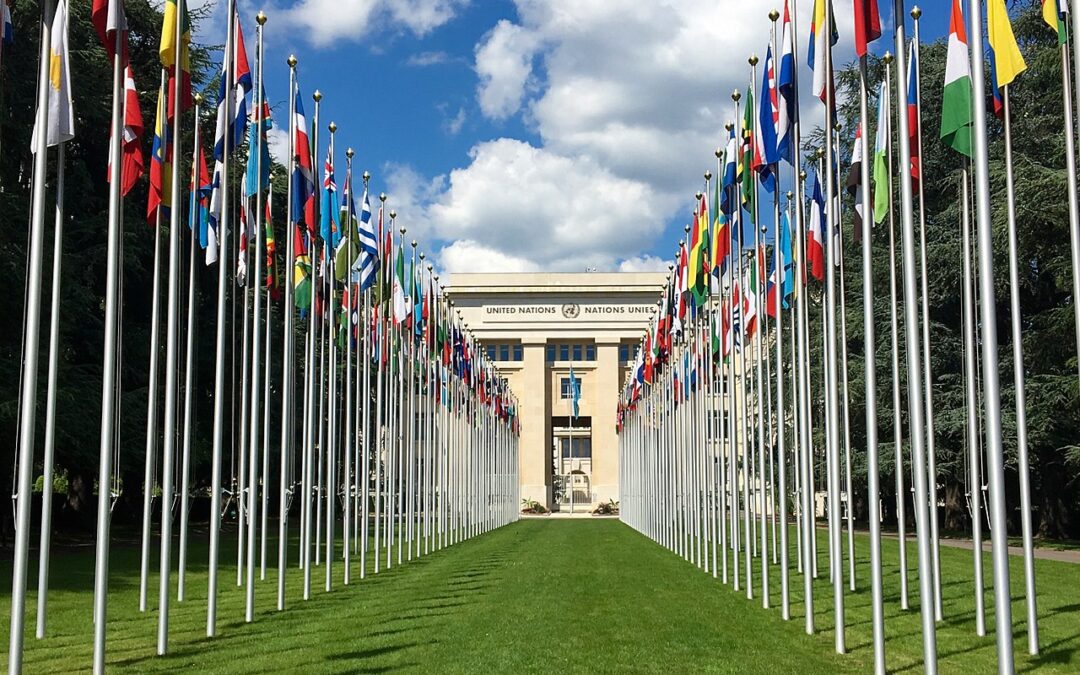
Sep 27, 2018 | News
Today’s decision by the UN Human Rights Council to create an ‘independent mechanism’ to collect evidence of crimes in Myanmar, is a significant step toward accountability for gross human rights violations, the ICJ said.
“The creation of this evidence-gathering mechanism is a welcome concrete step towards justice,” said Matt Pollard, Senior Legal Adviser for the ICJ.
“But this is a stopgap measure, effectively creating a prosecutor without a court, that only underscores the urgent need for the Security Council to refer the entire situation to the International Criminal Court, which was created for precisely such circumstances,” he added.
The Council’s decision follows on conclusions and recommendations by the Independent International Fact-Finding Mission on Myanmar (FFM).
The FFM’s 444-page full report described large-scale patterns of grave human rights violations against minority groups in the country, particularly in Rakhine, Kachin and Shan States.
It also highlighted the need for criminal investigations and prosecutions for crimes under international law, something the FFM concluded that national courts and commissions within Myanmar could not deliver.
“National justice institutions within Myanmar lack the independence, capacity and often also the will to hold perpetrators of human rights violations to account, particularly when members of security forces are involved. The latest government-established inquiry in Rakhine State also seems designed to deter and delay justice,” Pollard said.
The Human Rights Council resolution did not create a new international court or tribunal.
Evidence held by the independent mechanism could be made available to international or national proceedings, whether at the International Criminal Court (ICC) or another ad hoc international tribunal, or to national prosecutors asserting jurisdiction over the crimes under universal jurisdiction or other grounds.
While there is no realistic prospect of effective national prosecutions within Myanmar in the near future, evidence held by the mechanism could also be available in future should national institutions eventually become sufficiently impartial, independent, competent, and capable to do so.
A preliminary examination of the situation of Rohingyas, being conducted by the ICC, may also lead to criminal proceedings but will likely be limited to those crimes that have partially occurred within Bangladesh, such as the crime against humanity of deportation.
Bangladesh is a State Party to the Rome Statute of the ICC whilst Myanmar is not.
The Security Council also has authority to refer the entire situation to the International Criminal Court.
“The Myanmar government should stop denying the truth and should work with the international community, and particularly the United Nations, to improve the horrific conditions facing the Rohingya and other ethnic minorities whose rights have been violated so brutally by the security forces, as documented by the Fact Finding Mission,” Pollard said.
“Myanmar’s international partners, including neighbours like India, China, and members of the Association of Southeast Asian Nations (ASEAN), should exercise their influence to help ensure that Myanmar addresses this serious threat to the stability of the country and the region, by ensuring respect, protection and fulfillment of the full range of civil, cultural, economic, political and social rights of the affected minorities,” he added.
The Council resolution makes several other substantive recommendations, including a call on the Government of Myanmar to review the 1982 Citizenship Law, and a recommendation for the United Nations to conduct an inquiry into its involvement in Myanmar since 2011.
Contact:
Matt Pollard, ICJ Senior Legal Adviser (Geneva), e: matt.pollard@icj.org, +41 79 246 54 75.
Frederick Rawski, ICJ Asia Pacific Regional Director (Bangkok), e: frederick.rawski@icj.org
Read also:
Why an IIIM and Security Council referral are needed despite the ICC ruling relating to Bangladesh (13 September 2018)
Government’s Commission of Inquiry cannot deliver justice or accountability (7 September 2018)
ICJ releases Q & A on crime of genocide (27 August 2018)
Myanmar: reverse laws and practices that perpetuate military impunity (16 January 2018)
Summary report of the Fact Finding Mission (12 September 2018)
Full report of the Fact Finding Mission (published 18 September 2018)
Text of the Resolution (unofficial version tabled in advance of the vote)
Myanmar-IIIM statement-Advocacy-2018-BUR (Full story in Burmese)
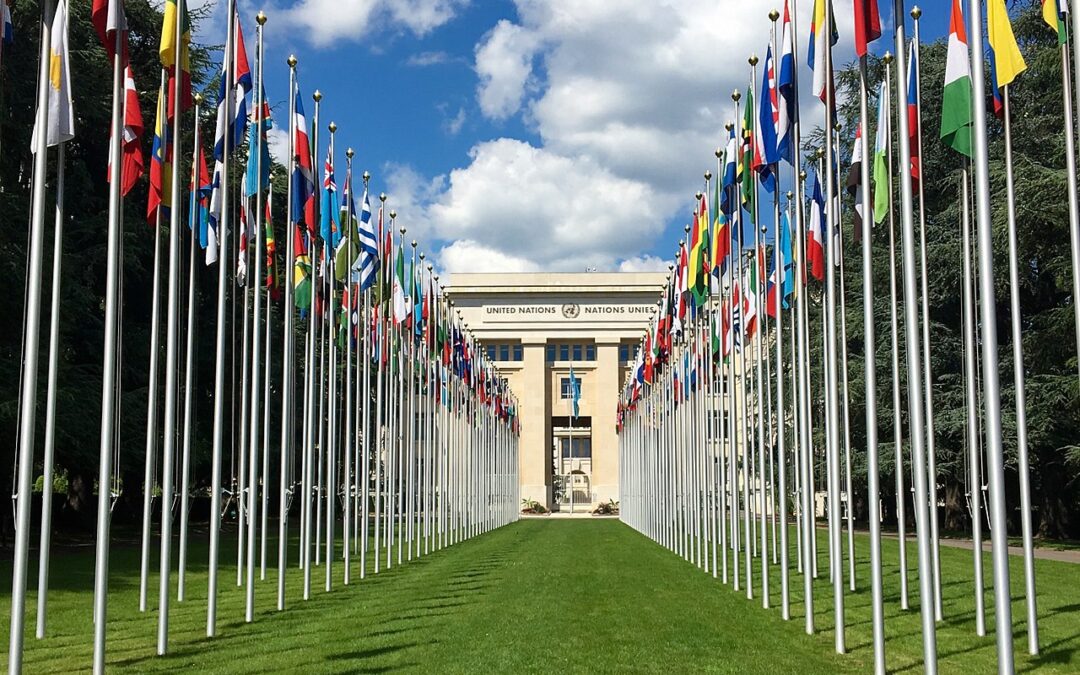
Sep 27, 2018 | Nouvelles
La décision prise aujourd’hui par le Conseil des droits de l’Homme des Nations unies de créer un “mécanisme indépendant” pour recueillir des preuves de crimes au Myanmar constitue un pas important vers la responsabilité pour les violations flagrantes des droits de l’Homme, a déclaré la CIJ.
«La création de ce mécanisme de collecte de preuves est une étape concrète bienvenue vers la justice», a déclaré Matt Pollard, conseiller juridique principal de la CIJ.
«Mais il s’agit d’une mesure bouche-trou visant à créer un procureur sans tribunal, ce qui ne fait que souligner la nécessité urgente pour le Conseil de sécurité de référer l’ensemble de la situation devant la Cour pénale internationale, qui a été créée précisément pour de telles circonstances», at-il ajouté.
La décision du Conseil fait suite aux conclusions et recommandations de la Mission d’enquête internationale indépendante sur le Myanmar (FFM).
Le rapport complet de 444 pages de la Mission d’enquête a décrit de graves violations de l’Homme perpétrées à grande échelle des droits contre des groupes minoritaires dans le pays, en particulier dans les États de Rakhine, Kachin et Shan.
Il a également souligné la nécessité d’enquêtes et poursuites pénales pour des crimes sous le droit international, ce à quoi la Mission d’enquête a conclu que les tribunaux nationaux et les commissions du Myanmar ne pouvaient pas y répondre.
«Les institutions judiciaires nationales du Myanmar manquent d’indépendance, de capacités et souvent aussi de volonté de demander des comptes aux auteurs d’atteintes aux droits de l’Homme, en particulier lorsque des membres des forces de sécurité sont impliquées. La dernière enquête établie par le gouvernement dans l’État de Rakhine semble également conçue pour dissuader et retarder la justice », a déclaré Pollard.
La résolution du Conseil des droits de l’Homme n’a pas créé de nouvelle cour ou tribunal international.
Les preuves détenues par le mécanisme indépendant pourraient être communiquées à des procédures internationales ou nationales, que ce soit devant la Cour pénale internationale (CPI) ou un autre tribunal international ad hoc, ou aux procureurs nationaux faisant valoir leur compétence pour les crimes relevant de la compétence universelle ou pour d’autres motifs.
Bien qu’il n’y ait aucune perspective réaliste de poursuites nationales efficaces au Myanmar dans un proche avenir, le mécanisme pourrait également fournir des preuves à l’avenir si les institutions nationales devenaient finalement suffisamment impartiales, indépendantes, compétentes et capables de le faire.
Un examen préliminaire de la situation des Rohingyas, mené par la CPI, peut également donner lieu à des poursuites pénales mais sera probablement limité aux crimes qui se sont déroulés en partie au Bangladesh, tels que le crime contre l’humanité en matière d’expulsion.
Le Bangladesh est un État partie au Statut de Rome de la CPI, contrairement au Myanmar.
Le Conseil de sécurité est également habilité à référer la totalité de la situation devant la Cour pénale internationale.
«Le gouvernement du Myanmar devrait cesser de nier la vérité et collaborer avec la communauté internationale, en particulier les Nations unies, afin d’améliorer les conditions de vie dans lesquelles se trouvent les Rohingya et les autres minorités ethniques, dont les droits ont été violés de manière aussi brutale par les forces de sécurité, comme documenté par la Mission d’enquête », a déclaré Pollard.
«Les partenaires internationaux du Myanmar, y compris des voisins tels que l’Inde et la Chine, et des membres de l’Association des nations de l’Asie du Sud-Est (ASEAN), devraient exercer leur influence pour faire en sorte que le Myanmar s’attaque à cette grave menace à la stabilité du pays et de la région en veillant au respect, la protection et la mise en oeuvre de l’ensemble des droits civils, culturels, économiques, politiques et sociaux des minorités concernées », a-t-il ajouté.
La résolution du Conseil contient plusieurs autres recommandations de fond, notamment un appel au gouvernement du Myanmar à réviser la loi de 1982 sur la citoyenneté et une recommandation aux Nations unies d’ouvrir une enquête sur son implication au Myanmar depuis 2011.
Contact:
Matt Pollard, conseiller juridique principal à la CIJ (Genève), e: matt.pollard@icj.org, +41 79 246 54 75.
Frederick Rawski, directeur régional Asie-Pacifique de la CIJ (Bangkok), e: frederick.rawski@icj.org
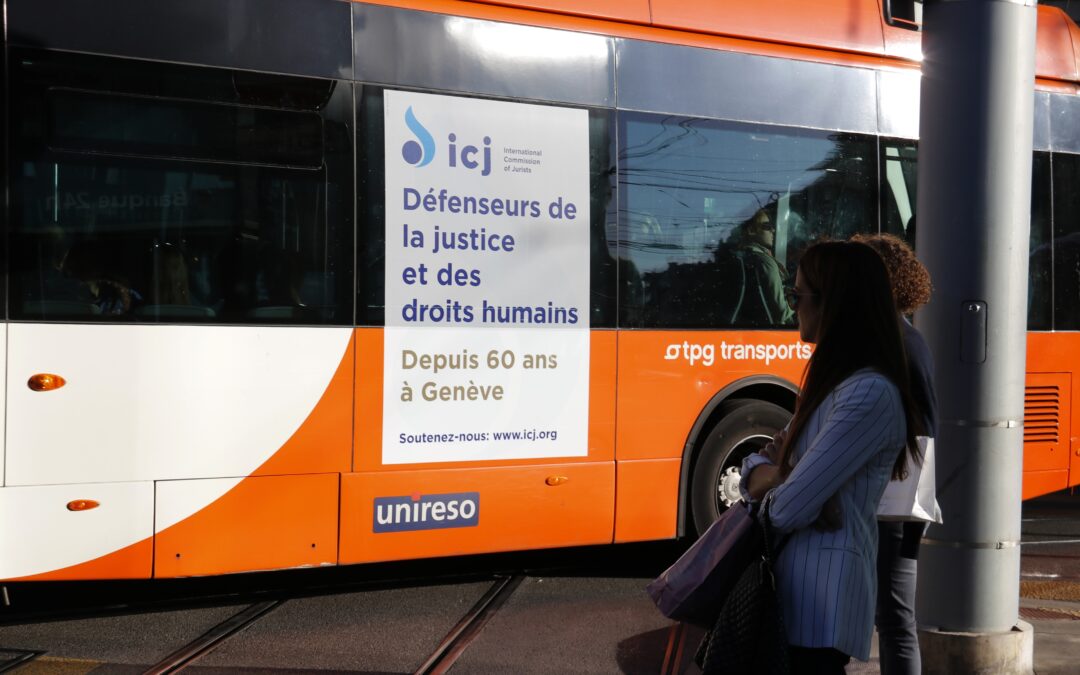
Sep 27, 2018 | Communiqués de presse, Nouvelles
2018 marque le 60ème anniversaire de l’arrivée à Genève de l’ICJ, à l’initiative du grand juriste Suisse Jean-Flavien Lalive qui était Secrétaire Général de l’Organisation en 1958.
Lors du Congrès de l’ICJ à New Delhi en 1959, le Dr Lalive a contribué à définir les principes de l’Etat de Droit et des droits de l’Homme.
La Déclaration de Delhi, en particulier, constitue à ce jour un instrument fondamental dans la définition de la primauté du droit dont les juristes sont principalement responsables pour sauvegarder et faire progresser les droits de l’Homme.
Cela fait de l’ICJ l’une des plus anciennes organisations internationales basées à Genève.
Elle y joue un rôle unique et prééminent en tant qu’organisation non gouvernementale pour la défense des droits de l’Homme et de l’Etat de Droit dans le monde.
L’ICJ va marquer cet événement par deux activités majeures:
- Une campagne de visibilité du 26 septembre au 9 octobre sur cinq véhicules et tous les écrans intérieurs des trams et bus des TPG avec le slogan « Défenseurs de la justice et des droits humains – Depuis 60 ans à Genève »
- Le lancement de l’Appel du 60ème Anniversaire à tous les avocats du canton et de la Ville de Genève pour qu’ils soutiennent l’ICJ et, à travers elle, leurs confrères moins privilégiés, victimes de persécutions sur les cinq continents.
« Genève peut être fière de son image de capitale mondiale des droits de l’Homme. Elle est un phare pour ces défenseurs de la justice dans le monde. Il faut continuer à le faire rayonner, » souligne Sam Zarifi, secrétaire général de l’ICJ.
« Par son action en 60 ans, l’ICJ a grandement contribué à l’aura de Genève en matière de protection des droits de l’Homme : les campagnes ayant abouti à la création du poste de Haut-Commissaire aux droits de l’Homme en 1993 et du Conseil des droits de l’Homme à l’ONU en 2006, ainsi que celle qui a concouru à l’adoption de la Convention des Nations Unies contre la torture en 1984 sont quelques exemples notoires, » rappelle Olivier Coutau, Délégué à la Genève Internationale.
« Face aux attaques répétées contre les droits de l’Homme, le monde a besoin, plus que jamais, d’une défense compétente, rigoureuse et efficace de l’Etat de Droit par l’ICJ, » ajoute Sam Zarifi, secrétaire général de l’ICJ.
L’Appel du 60ème Anniversaire de l’ICJ est soutenu par la République et canton de Genève.
Information additionnelle
La réputation internationale de l’ICJ repose sur les piliers suivants:
- 60 Commissaires – juges et avocats éminents – du monde entier et de tous les systèmes juridiques, avec une connaissance sans égale du droit et des droits de l’Homme;
- Coopération avec les gouvernements qui s’engagent à améliorer leur performance en matière de droits de l’Homme;
- Équilibre efficace entre diplomatie, critique constructive, renforcement des capacités et, si nécessaire, dénonciation;
- Accès direct unique aux systèmes judiciaires nationaux et mise en place de normes internationales et de législations améliorées impactant des millions de personnes;
- Guider, former et protéger les juges et les avocats dans le monde afin qu’ils respectent et appliquent ces normes;
- Oeuvrer en faveur de l’accès à la justice pour les victimes, les survivants et les défenseurs des droits de l’Homme, et notamment les personnes issues de communautés marginalisées;
- Gestion rigoureuse basée sur résultats concrets dans l’exécution de ses projets.
En reconnaissance de cette approche efficace, l’ICJ s’est vu décerner, au cours de sa longue histoire, certaines des distinctions internationales les plus prestigieuses : Prix Européen des Droits de l’Homme du Conseil de l’Europe, United Nations Award for Human Rights, Erasmus Prize, Carnegie Foundation Wateler Peace Prize.
En 2018, l’ICJ a offert des formations locales sur les cinq continents, afin que 4,300 juges, avocats et procureurs renforcent leur compétence pour protéger et promouvoir les droits fondamentaux.
L’ICJ a un statut consultatif auprès des Nations Unies, du Conseil économique et social des Nations Unies, de l’UNESCO, du Conseil de l’Europe et de l’Union africaine.
Contact :
Michaël W. Sombart, Directeur Philanthropie & Partenariats stratégiques, t: +41 22 979 38 31 ; m: +41 77 965 98 45 ; e: michael.sombart(a)icj.org
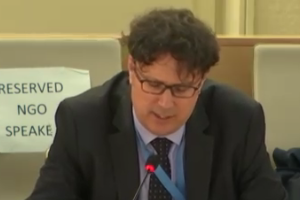
Sep 26, 2018 | Advocacy, Non-legal submissions
The ICJ today highlighted the steep decline for human rights and the rule of law in Cambodia, at the UN Human Rights Council in Geneva.
The statement, made during an interactive dialogue with the Special Rapporteur on the situation of human rights in Cambodia, read as follows:
“Mr President,
The findings reported by the Special Rapporteur on the situation of human rights in Cambodia (A/HRC/39/73; A/HRC/39/73/Add.1), detailing the steep decline for human rights and rule of law in Cambodia prior to and during the 2018 national elections, demonstrate the utter inadequacy of the Human Rights Council’s current focus on technical assistance and capacity-building in Cambodia.
The elections, neither free nor fair, resulted in the ruling party winning all seats in the National Assembly. Post-election, the Government continues to misuse laws to violate rights and harass journalists, human rights defenders, political opposition members and ordinary individuals, as evidenced by the following updates to cases highlighted by the Special Rapporteur.
Unjustified espionage charges hang over two journalists, who spent eight months in detention before being released pending trial.[1] A filmmaker, sentenced to imprisonment for alleged espionage after flying a drone over an opposition rally, was only released by royal pardon after more than a year in jail.
Days after release from two years in jail for conducting a peaceful protest, a land rights activist was handed a six-month suspended sentence for a politically-motivated charge from 2012.[2] Following his release after 18 months in prison for alleged defamation and incitement offences, a political commentator fled Cambodia when fresh politically-motivated charges were mounted against him.[3]
Treason charges remain active against Kem Sokha, leader of the now-dissolved main opposition party, now under house arrest.[4]
A barber and a school principal remain imprisoned for allegedly sharing information online in breach of a lese-majeste law.[5] A woman remains imprisoned for alleged insult and incitement offences for throwing a shoe at a ruling party billboard.[6]
Today, four senior staff from a prominent civil society organization and a National Election Committee official were convicted under politically-motivated charges and handed five-year suspended imprisonment sentences.[7]
Madam Special Rapporteur, what approach should the Council, governments and civil society take to ensure human rights and the rule of law in Cambodia, given that technical assistance and capacity-building alone seem clearly not to be having the necessary effect?
Thank you.”
[1] A/HRC/39/73/Add.1, para 42.
[2] A/HRC/39/73, para 13.
[3] A/HRC/39/73/Add.1, para 35.
[4] A/HRC/39/73/Add.1, paras 18 and 19.
[5] A/HRC/39/73/Add.1, para 46.
[6] A/HRC/39/73/Add.1, para 30.
[7] A/HRC/39/73, para 13; A/HRC/73/Add.1, para 35









